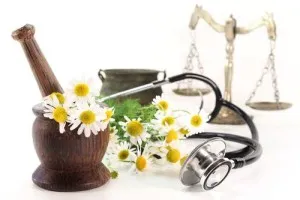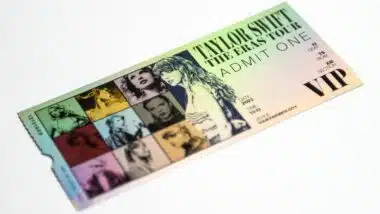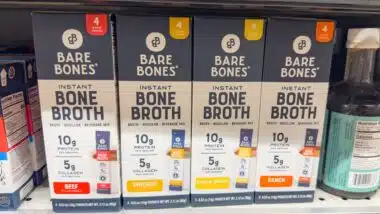 Australian medical experts concluded that, despite its growing popularity and grandiose claims on product labeling, there is not enough evidence that homeopathy is an effective method for treating any medical issues.
Australian medical experts concluded that, despite its growing popularity and grandiose claims on product labeling, there is not enough evidence that homeopathy is an effective method for treating any medical issues.
Homeopathy is based on the idea that substances which, to healthy people, can cause sickness or detrimental symptoms, can actually be used to treat similar or related symptoms of a sick person. Time Magazine gives this example: “if a healthy person gets burning or watery eyes from cutting an onion, the idea is that a person with a cold who has those same symptoms could benefit from a very tiny dose of an onion remedy.”
The National Health and Medical Research Council (NHMRC) in Australia reviewed over 200 studies on homeopathy as a medical possibility, but reached the conclusion that any support of homeopathy is not based on high-quality scientific evidence.
According to the NHMRC, some of the studies the council looked at did conclude that homeopathic methods were effective, but the studies themselves were to be considered unreliable, either because they were done on too small of a scale or because they were simply of poor quality.
The National Institutes of Health in the United States agreed with Australia’s NHMRC, saying that there is “little evidence to support homeopathy as an effective treatment for any specific condition.”
The main attraction for people worldwide, including millions of Americans, is homeopathy’s supposedly “natural” basis. However, the U.S. Food and Drug Administration has not approved homeopathic products for the public.
Not only is the use of homoeopathic products and medicines not recommended because they are ineffective, but also because using such products in place of FDA approved, medically tested, effective methods could place its users at risk.
Homeopathic treatments that claim to cure sickness or various other medical issues simply and naturally are said to often be essentially scams. The homeopathic industry is growing, offering products which seem too good to be true.
Many homeopathy companies have paid millions of dollars in settlements after being hit with claims that they intentionally misled consumers about what their products can do.
Join a Free Homeopathy or Dietary Supplement Fraud Class Action Lawsuit Investigation
If you purchased a homeopathic or dietary supplement product that failed to perform as advertised, chances are you’ve been the victim of homeopathy or dietary supplement fraud. You may have a claim to seek compensation through a consumer protection class action lawsuit.
ATTORNEY ADVERTISING
Top Class Actions is a Proud Member of the American Bar Association
LEGAL INFORMATION IS NOT LEGAL ADVICE
Top Class Actions Legal Statement
©2008 – 2025 Top Class Actions® LLC
Various Trademarks held by their respective owners
This website is not intended for viewing or usage by European Union citizens.
Health-conscious consumers are increasingly turning to dietary supplements and homeopathic products for natural “remedies” to a wide variety of ailments.
These multi-billion dollar industries have capitalized on this trend by offering a wide variety of products that promise to effectively treat or prevent almost any ailment. Yet critics claim that both industries are rampant with fraudulent products that are nothing more than scams. In fact, many companies have paid millions of dollars to settle legal claims that they intentionally mislead consumers.
Overview of Natural Remedy/Supplement Fraud
Federal regulators continue to warn consumers about products marketed as dietary supplements that are not FDA-approved. The agency has found nearly 300 fraudulent products — promoted mainly for weight loss, sexual enhancement, and bodybuilding — that contain hidden or deceptively labeled ingredients. [Source: FDA “Beware of Fraudulent Dietary Supplements”]
The Food and Drug Administration is also considering placing stricter guidelines on over-the-counter homeopathic remedies. In April, the FDA held a two-day “listening session” where it heard from experts and the public about how to regulate these products. Homeopathy medicine has become a $2.9 billion business that has seen “explosive growth” despite having no evidence that these products actually work, according to Australia’s National Health and Medical Research Council.
For example, many homeopathic “remedies” are so highly diluted and contain so little of the “active” ingredient that critics believe they are nothing more than glorified placebos pills. Because of this, numerous homeopathic class action lawsuits have been filed (and settled) against companies alleging they deliberately tricked consumers into buying expensive homeopathy remedies that are ineffective.
Similarly, many dietary supplements make impressive sounding claims to entice consumers to buy them, even though many believe the products do not deliver the promised benefits. These claims are particularly prominent among weight-loss, testosterone, mood, memory, and sexual performance supplements. Weight-loss supplements, for instance, often promise to help consumers lose substantial amounts of weight in days. But as doctors and government officials alike have warned, products making such claims are almost always scams.
Join a Free Homeopathy or Dietary Supplement Fraud Class Action Lawsuit Investigation
If you purchased a homeopathic or dietary supplement product that failed to perform as advertised, chances are you’ve been the victim of homeopathy or dietary supplement fraud. You may have a claim to seek compensation through a consumer protection class action lawsuit.
ATTORNEY ADVERTISING
Top Class Actions is a Proud Member of the American Bar Association
LEGAL INFORMATION IS NOT LEGAL ADVICE
Top Class Actions Legal Statement
©2008 – 2025 Top Class Actions® LLC
Various Trademarks held by their respective owners
This website is not intended for viewing or usage by European Union citizens.















One thought on Homeopathy Denounced as Ineffective by Medical Experts
used many supplements for memory, mood and diet and non worked. and bought so called blood pressure and supplements to help maintain blood sugar for my companion who had diabetes. those did not work either, cinnamon, garlic, gingko bilaba, hoodia, green tea, GARCINIA CAMBOGIA, st john’s wort, rasberry ketones, to name a few. please add me